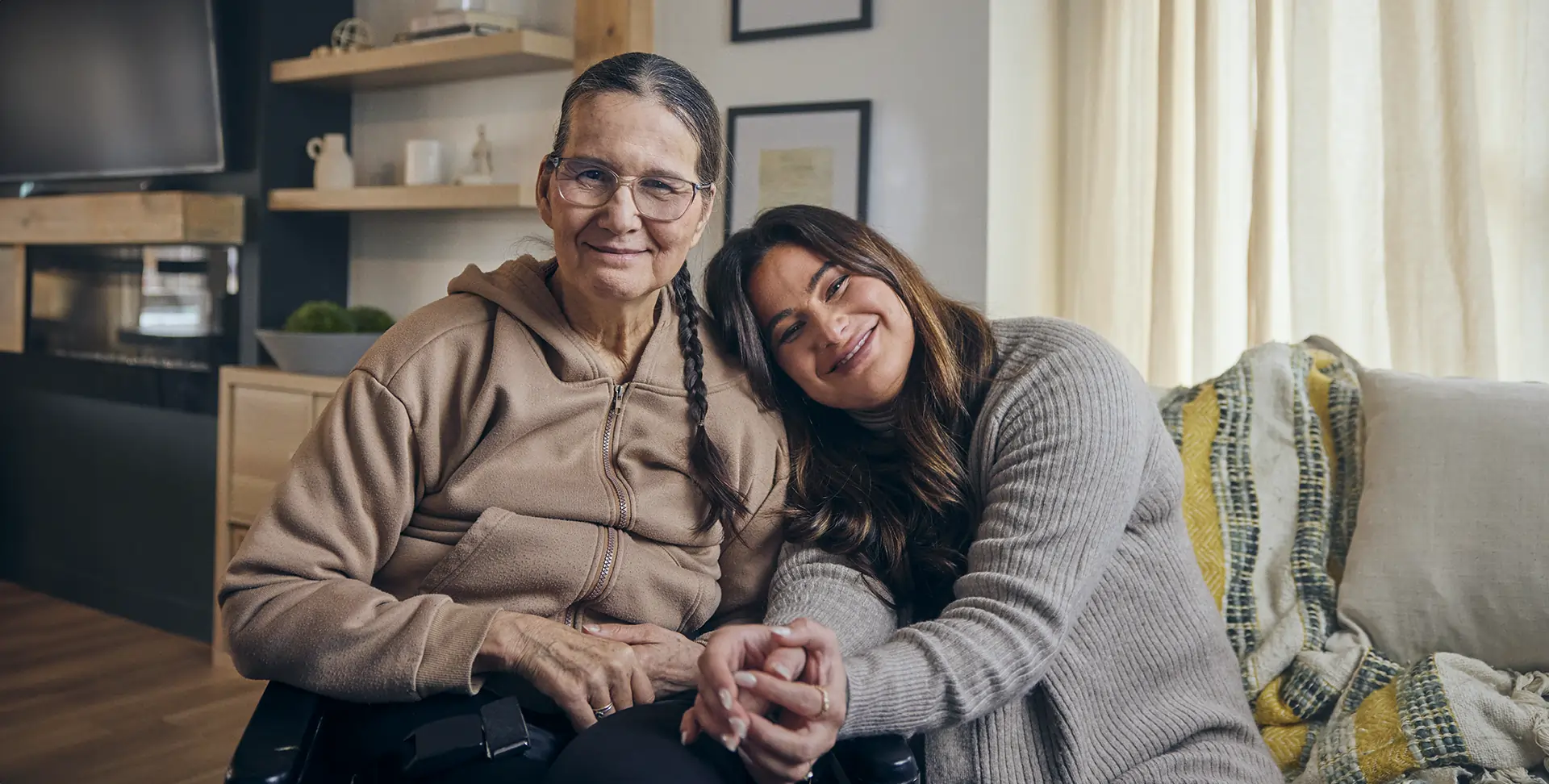
Tackling the emotional impacts of stroke
Dr. Swati Mehta helps people embrace an altered future
Chapter 1 A missing piece
When Swati Mehta was a PhD student in rehabilitation medicine, she noticed a gap in the support available to help people recover from stroke: mental health.
“There was a lot of focus on physical rehabilitation, which is integral recovery,” she says. But she saw a need for integrating more holistic approaches, like mental and emotional challenges that many people face. Mental health challenges often go unseen and unspoken.
“Stroke can be a life-changing event. It can really shatter an individual’s sense of self and their role in the community,” says Dr. Mehta, now a psychotherapist at St. Joseph’s Health Care London’s Parkwood Institute, scientist at Lawson Health Research Institute and adjunct assistant professor at Western University in London, Ont.
So, how could you help someone face a future that’s been altered by stroke, supporting their mental wellbeing and helping them rebuild meaningful social connections? That’s the gap Dr. Mehta is trying to fill, with support from Heart & Stroke donors.
Chapter 2 Delivering skills and support
Dr. Mehta has developed a 10-week self-directed program that combines online modules with person-to-person support, all accessed from home. “We aim to help them develop a sense of community by connecting them to different groups and see how we can help them engage in the community again,” Dr. Mehta says.
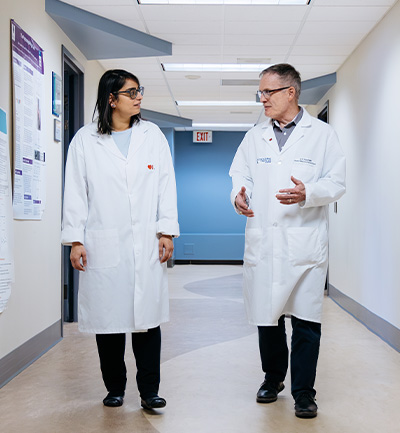
Dr. Swati Mehta and her CO-PI, Dr. Robert Teasell
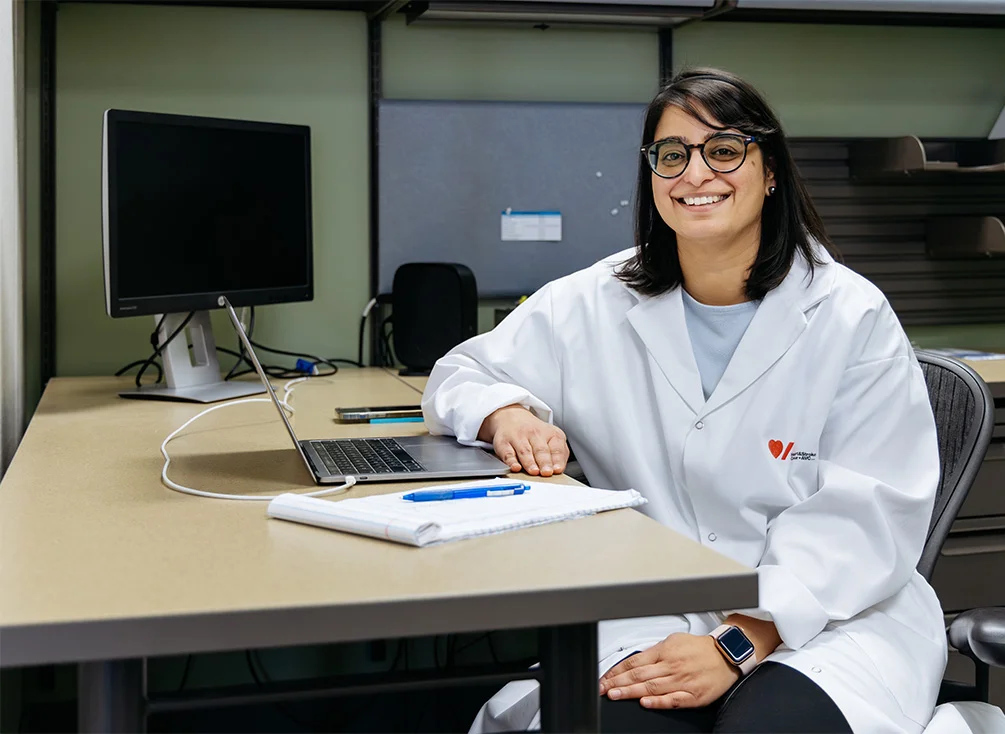
Dr. Mehta’s 10-week program is helping people restore their mental health after a stroke. Heart & Stroke donors made this program possible.
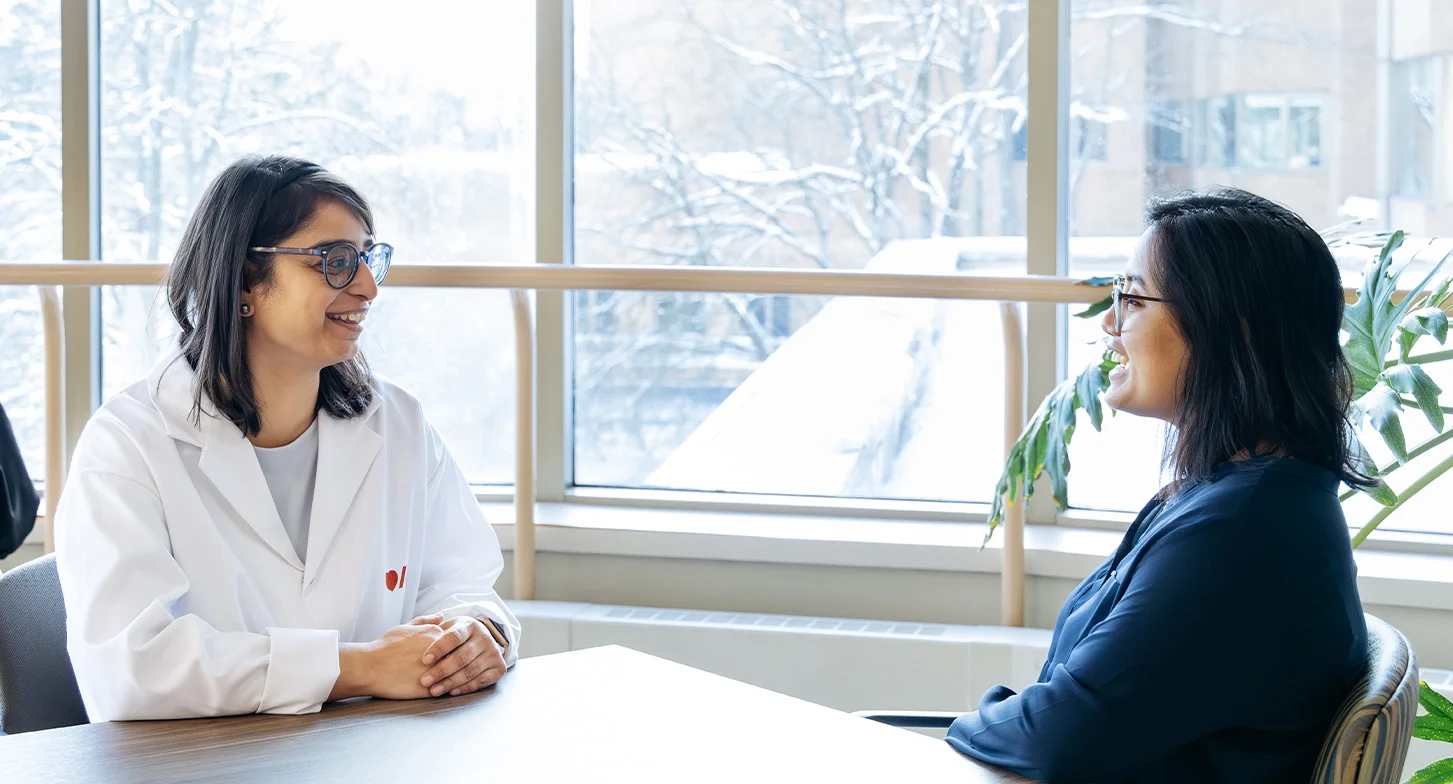
Dr. Mehta with her PhD student.
The program is based on the principles of cognitive behaviour therapy (CBT) – an evidence-based cognitive approach – to help participants tackle challenges such as unhelpful thoughts and behaviours, communicating with loved ones, and managing memory problems. The overall aim of the program is to empower individuals to self-manage their emotional wellbeing after stroke. She’s recruiting 130 people to test its effectiveness in a clinical trial.
“Each week, participants log into our portal to complete weekly lessons which include videos, animations, text, and homework assignments,” she explains. “During that week, they also get a check-in through a phone call or virtual video link. They connect with a trained clinician who helps them, develop and practice skills to self-manage their symptoms, and integrate the knowledge towards their goals.”
Personal interaction with a trained clinician is a key element, she stresses. “Each week, the guide helps people practice what they’ve learned, personalize the content to their needs, and motivate them to engage in the program.”
Chapter 3 A future with holistic care
While designing the program, Dr. Mehta worked collaboratively with people who are living with stroke. For example, someone with lived experience worked with a speech language pathologist and animators to guide the creation of animations, which can act as an alternative to written words. These visuals have the power to make material more accessible to someone with communication challenges – something that can happen post stroke.
How will she know if the program is helping people? The research team is measuring participants’ ability to manage their mood, symptoms of depression and feelings of self-efficacy.
They are also tracking how often participants access healthcare resources — such as appointments or visits to the emergency department — over a one-year period from starting the program. “We're trying to see how effective it is in reducing the strain on healthcare visits,” Mehta says. “We’re also assessing cost effectiveness to ensure this research delivers results that can help people across Canada.”
Dr. Mehta is determined to see this research make an impact. “The ultimate goal I hope for is integrated care,” she asserts.
She was thrilled that her study was selected to receive a research grant from Heart & Stroke — her first.
And she’s hopeful that this funding indicates a culture shift toward a more holistic approach to stroke recovery. “I think this approach can really impact how well people participate and embrace their disability and engage in the community; it can contribute to a more meaningful life.”
- Learn more about recovering from a stroke
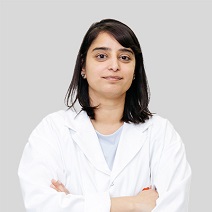
More stories
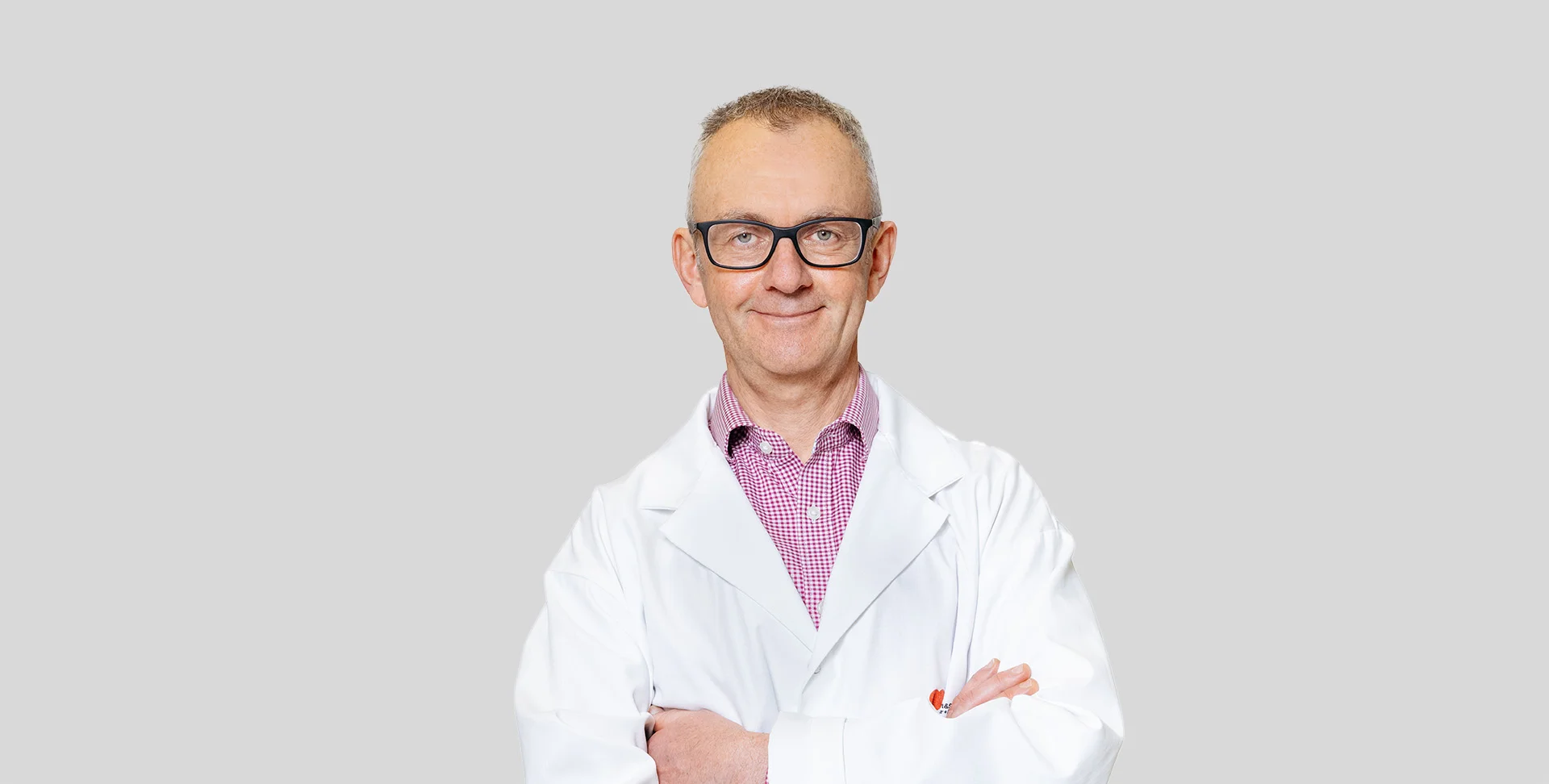
Taking aim at a key cause of dementia
Dr. Philip Barber uses machine learning to take aim at vascular cognitive impairment
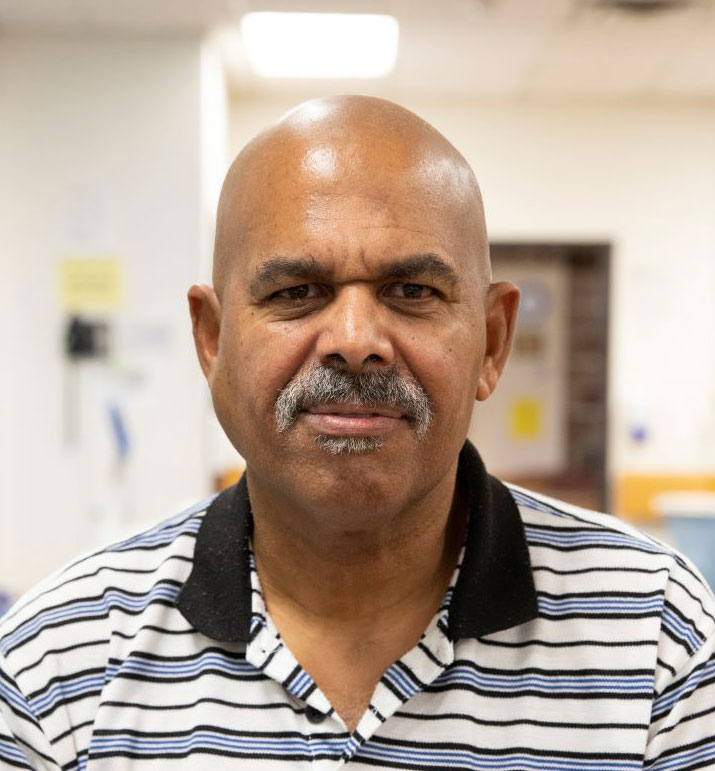
Giving up is not in my vocabulary
With his wife by his side, Michael is determined to beat stroke.
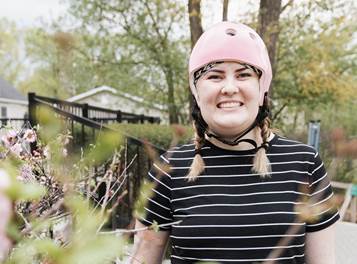
After a stroke at 24
Surgeons finally put Courtney’s skull back together. Then she had to put her life back together.
